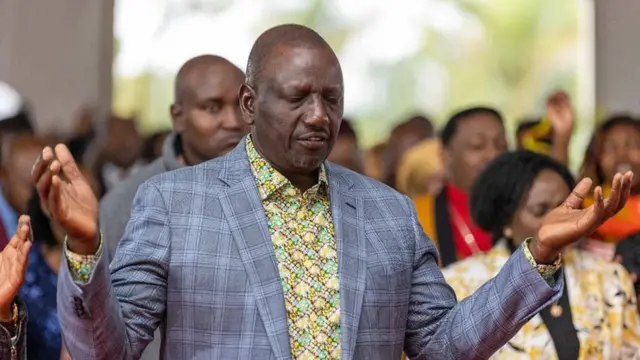Former Kenyan Deputy President Rigathi Gachagua has pointed to personal convictions and policy disagreements as key reasons behind his removal from office. Speaking recently during a visit to the United States, Gachagua said his Christian faith guided many of his decisions while in government, including opposition to certain policies endorsed by President William Ruto.
“The president had already made up his mind that he needed me out of office. I’m a practicing Christian, and there are certain things that I couldn’t agree to,” he said.
Gachagua’s remarks came during a month-long tour across several American cities, where he addressed Kenyan communities and outlined his plans for the future. While speaking in Boston, he said he intends to run for president in the 2027 elections and believes he stands a strong chance of winning.
The former deputy president was impeached by the Kenyan National Assembly in October last year, following charges that included corruption and violation of the oath of office. Gachagua has denied all accusations, describing them as politically motivated.
At the heart of his disagreement with the president was a controversial security policy aimed at controlling demonstrations. Ruto had defended the approach as a deterrent against property destruction, but Gachagua said the measures went against his values. The policy, which allowed for non-lethal force against protesters, has drawn criticism after a number of civilians were killed during clashes with security forces. Reports of unlawful detentions have also emerged, raising concerns about the protection of civil liberties in the country.
Gachagua further noted that these events reflect a problem within the current political environment. He says Kenya’s opposition and oversight institutions have lost their independence, leaving young citizens to speak out against government excesses.
“The opposition has been captured, and all the institutions of oversight have been compromised. So, it has left the young people to speak for the Kenyan people. Of course, coupled with violation of human rights and making sure that there is nobody who can hold the president to account,” he said.
Despite the country’s political challenges, Gachagua continues to express confidence in Kenya’s democratic process. He said change must come through elections and not through unrest.
“Kenya is a democracy, it’s a constitutional democracy. And we have elections every five years. Much as we are struggling, we don’t want change through any other method. We want to wait for the elections on the 10th of August 2027. Kenyans will wake up early, go to the ballot and elect leaders who can take care of their country,” he said.
He also spoke about other national issues, including the threat of terrorism. Kenya maintains a military presence along the borders with Somalia and South Sudan, which he said sometimes leads to reprisal attacks against civilians by extremist groups. Gachagua acknowledged the support provided by the United States in counter-terrorism efforts, especially in intelligence sharing.
Beyond security, he believes leadership rooted in strong personal values can help address the country’s broader challenges. He credits his Christian beliefs with shaping his views on governance, human dignity, and the importance of family and hard work.
“Good leadership is well anchored in the Bible. The Bible wants sanctity of human life. It wants people to be industrious; it wants people to work hard. And when you are practicing Christian, undoubtedly you become a very good leader, especially if you are true to the Christian values. Again, our Christian faith is very clear on family values. And to build a strong nation, you need to build strong families,” he said.
Gachagua also made the case for Kenya’s regional importance. He described the country as a stabilising force in East Africa, saying that its wellbeing has broader implications beyond its borders.
“Kenya is an anchor state and the stability of the Kenyan nation stabilizes the East African region, which is also important for American strategic interest. So, a stable Kenya is good for America and it’s good for the world,” he said.


